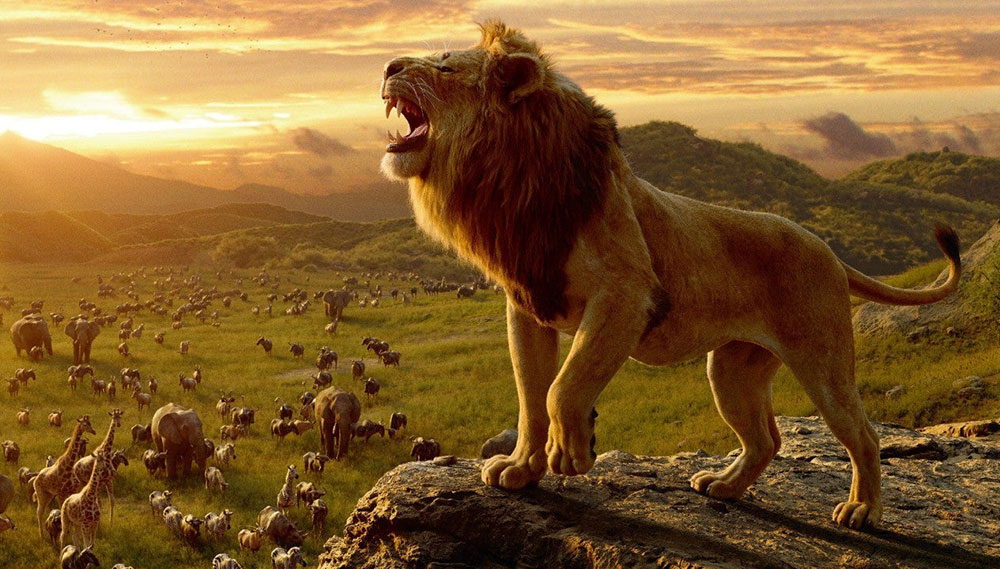What’s to watch on Netflix?
- 20 Apr - 26 Apr, 2024
Unfolding the world’s longest and least convincing deep-fake, the photorealistic remake of The Lion King is meant to represent the next step in Disney’s circle of life. Instead, this soulless chimera of a film comes off as little more than a glorified tech demo from a greedy conglomerate – a well-rendered but creatively bankrupt self-portrait of a movie studio eating its own tail. Unlike the rest of the Disney’s latest rehashes, The Lion King isn’t live-action: sometimes, the graphics look so good that your brain struggles to make sense of why they don’t look better (Pride Rock, we learn, is located deep inside the uncanny valley).

Most often, the animation is just bland in a way that saps the characters of their personalities. Scar used to be a Shakespearian villain brimming with catty rage and closeted frustration; now, he’s just a lion who sounds like Chiwetel Ejiofor. Simba used to be a sleek upstart whose regal heritage was tempered by youthful insecurity; now he’s just a lion who sounds like Donald Glover. Watching them come to blows against a realistic-but-dull background is disappointing.
On a conceptual level, The Lion King betrays the power of the hand-drawn artwork that once put the wonder into Disney animation from its earliest features. The movie fails to grapple with how the unreality of the studio’s lush 2D artwork unlocked kids’ imagination and made it so much fun to suspend disbelief; the digital wizardry denies our minds the permission they need to dream.
On an executional level, The Lion King manages to triple underline all of the basic problems with its big idea. The film is almost a scene-for-scene remake of the 1994 original, which means that it opens with its best and most awe-inspiring sequence. This is a movie that works best in wide shots, when you can almost pretend it’s real.
And then the animals start to talk. At first, it looks as if the lions are telepathic, and then they seem so badly dubbed that you wish they had been. The more adorable characters are easier to believe, as their cuteness allows for an extra dash of anthropomorphised fun, but the vocal performances aren’t equipped to carry the emotional weight that the hand-drawn animation once expressed on its own.
Eleven-year-old JD McCrary, who voices the young Simba, has a beautiful singing voice that saves I Just Can’t Wait to Be King from the pure tedium of watching two lion cubs walk against a desolate background, but his puffed up take on the lion cub turns the precocious cub into an entitled little hairball; the character is deeply annoying, and you just can’t wait for him to
grow up.
Beyond that, the casting is solid, even if the actors themselves are underused. Alfre Woodward is barely given a chance to register as the voice of Simba’s mother, Sarabi, which is all the more apparent when the mighty James Earl Jones shows up to reprise his iconic role as Mufasa – every line still feels like a heavenly roar. John Oliver was born to play an anxious hornbill, while Ejiofor is a fine Scar, though his reluctance to sing cuts the character off at the knees.
Or maybe the problem with Scar, whose army of hyenas is embossed with a light gloss of deplorability, is a bit more abstract: He represents a predatory new power who doesn’t respect tradition, prefers quick profits over long-term sustainability, and desecrates the delicate balance of life that has preserved the pride (and something proud about it) for generations. Scar is the villain of this story, but Favreau doesn’t seem to realise whose side his film is on.
The disparity between the size of Beyoncé’s role and the near-mythic recognisability of her speaking voice epitomises a film in which even the most important cast members have been reduced to mere signifiers of the parts they inhabit. Nala is nothing more than a call-back to a character we all remember, and that’s even more true of the wise mandrill Rafiki (a perfectly cast John Kani), who’s sidelined until the end, when he gets to relive Yoda’s big moment from “Attack of the Clones” with a concise ass-kicking showdown.
In the end, Rafiki only reinforces the feeling that a photo-realistic approach makes your brain question the film’s premise. The Lion King demands that we suspend our disbelief at the same time that it tries to convince us that we don’t have to, and the resulting dissonance is so draining that it becomes hard to remember how special this story once felt.
Zazu worries that the circle of life has become “a meaningless line of indifference,” but The Lion King more closely resembles a perfect ouroboros. It’s the work of a studio that’s gobbled up the rest of the film industry and is still hungry for more. The Lion King feels less like a remake than a snuff film, and a boring one at that.
– Compilation
COMMENTS